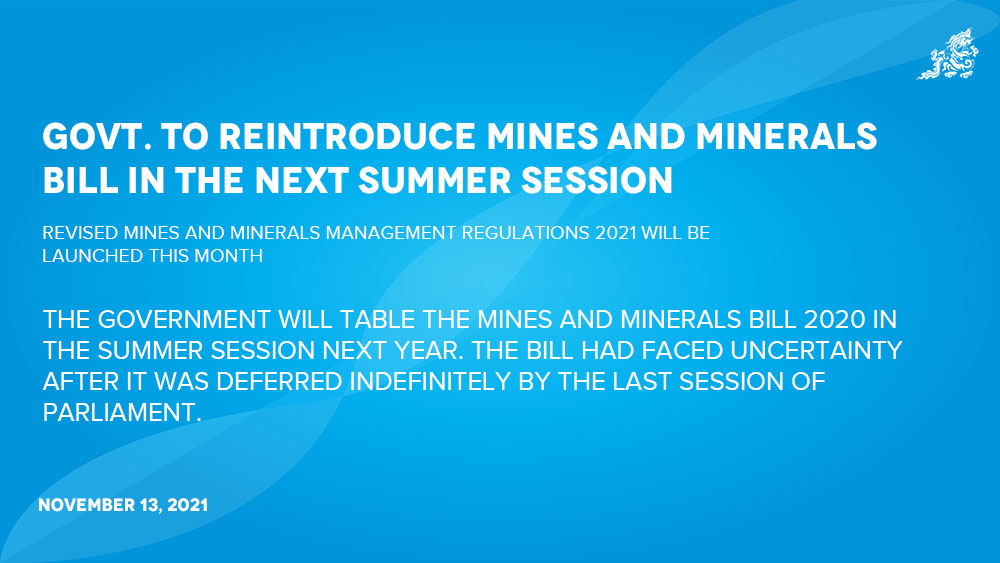Revised Mines and Minerals Management Regulations 2021 will be launched this month
MB Subba
The government will table the Mines and Minerals Bill 2020 in the summer session next year. The bill had faced uncertainty after it was deferred indefinitely by the last session of Parliament.
Many people, including some Members of Parliament, were of the view that the Bill would not be tabled during the current government’s term, given the differences between the two houses of Parliament and the lack of clarity on the reintroduction of such Bills earlier.
Economic Affairs Minister Loknath Sharma said the Bill can be tabled in the upcoming summer session. The government, he said, would consider the views of relevant stakeholders, including the public and both Houses of Parliament.
He said that the ministry has revised the Mines and Minerals Regulations 2002 to address the current issues. “The revised regulations are expected to be launched this month.”
One of the main changes, the minister said, would be on how and to whom mines and minerals would be allotted. “The current regulations mandate the government to allot predetermined mines through public notifications and a sealed or open tendering process.”
He said that the revised regulations would also cover the issues faced by the affected communities, which are said to have suffered livelihood and health issues.
The new regulations, Lyonpo Loknath Sharma said, would also cover who would explore new mines and minerals. But he did not mention what changes have been incorporated, saying that the new regulations are being reviewed by the Office of the Attorney General.
The current regulations allow the “division (now department) of geology and mines” or persons or agency to carry out surface or sub-surface mineral prospecting.
“The new regulations will be launched within this month (November),” he said.
The State Mining Corporation Limited (SMCL) has taken over coal, dolomite, and gypsum mines after the Department of Geology and Mines (DGM) suspended private mining activities last year in anticipation of a new Mines and Minerals Act.
Officials had said the arrangement was temporary and questions remained on whether the government would auction new mines and those that had been handed over to the SMCL to the public.
However, the economic affairs minister said that coal mines were given to the SMCL permanently, as they were a scarce resource.
Lyonpo also said that the government had studied the issues related to gypsum and dolomite mines and that the new regulations would address whether the two mines would be auctioned to the public.
“People will know all the details when we launch the revised regulations,” he said, without revealing the details.
He said that the dynamics of the economy have changed amid the pandemic, and that the Mines and Minerals Management Act 1995 needed to be updated.
However, some MPs say that there were no clear provisions in the Legislative Rules of Procedure on how and when to reintroduce a Bill that has been deferred by a joint sitting.
Some MPs say that the Mines Bill could be treated as a dead Bill, in which case it can be reintroduced after a year.
Officials said that the mines and minerals sector, which has been identified as one of the “five jewels” of the economy, would play an important role in the recovery of the economy.
According to the ministry, activities contributing “value addition” will be given preference.
A private sector official said that allowing the private sector to operate mines would help an economy that has been hit hard by the Covid-19 pandemic.
The National Council wants operation of all mines by state-owned enterprises (SOEs), but the government and the National Assembly are in favour of allocating strategic mines to state-owned enterprises (SOEs) and leaving non-strategic ones open to the private sector.
The Mines Act empowers the ministry to lease mineral deposits to both private individuals and state-owned corporations.
Edited by Tashi Dema


